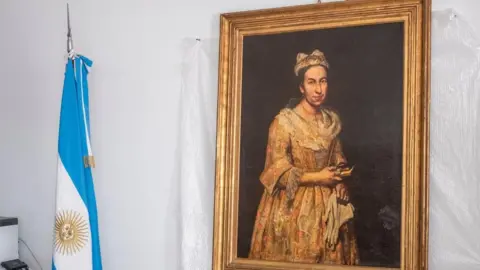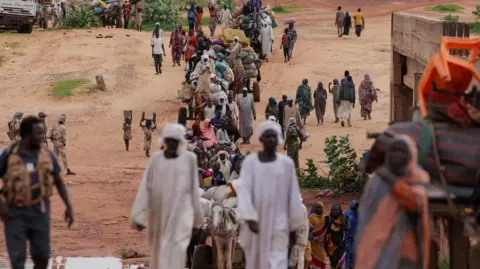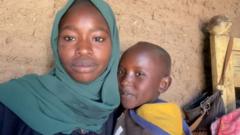More than three decades since the Srebrenica massacre, which resulted in the killing of over 8,000 Bosnian men and boys by Bosnian-Serb forces, the scars of this atrocity remain deeply embedded in Bosnia and Herzegovina. Recent performances, like the world premiere of the poignant play "Flowers of Srebrenica," express the profound grief and unresolved tensions that continue to affect society today.
The massacre, now recognized as one of the most horrific war crimes in Europe since World War Two, saw Bosniak civilians—predominantly Muslim—betrayed by UN forces, culminating in systematic murders overseen by General Ratko Mladić. The aftermath has left families in perpetual search for closure as remains were dispersed across various mass graves, complicating the healing process.
While Sarajevo's audiences resonate with the message of remembrance, stark contrasts exist in the neighboring majority-Serb Republika Srpska, where some political leaders deny the genocide altogether. Despite Mladić's conviction, figures such as Milorad Dodik, president of Republika Srpska, propagate narratives that undermine collective memory, arguing that mentioning Srebrenica serves only to deepen divides among ethnic communities.
In a broader unsettling context, the political landscape remains fraught with ethnic tensions. The Dayton Peace Agreement has divided Bosnia and Herzegovina into two entities, heightening grievances and leading to standoffs within the national government. Recent actions by Dodik—including efforts to withdraw from state institutions—have raised alarms about the undermining of the country’s fragile unity.
Commemoration events in Sarajevo evoke significant turnout and solidarity, while regions like East Sarajevo lack similar recognition of the events, showcasing the divide and the deep-seated political manipulation surrounding the memory of Srebrenica. Activists like Mirela Osmanović, who lost family members in the massacre, voice deep concerns about recent political climate shifts, evoking memories of the violence from the early 1990s and the lingering fears they sow within affected communities.
As the country reflects on its painful history, the failure to achieve lasting reconciliation continues to threaten stability, with many fearing that the specter of the past might repeat. While some political figures stoke divisions for power, a significant movement aimed at commemoration and recognition persists among grassroots activists and concerned citizens, revealing a complex struggle for a shared memory and future.





















